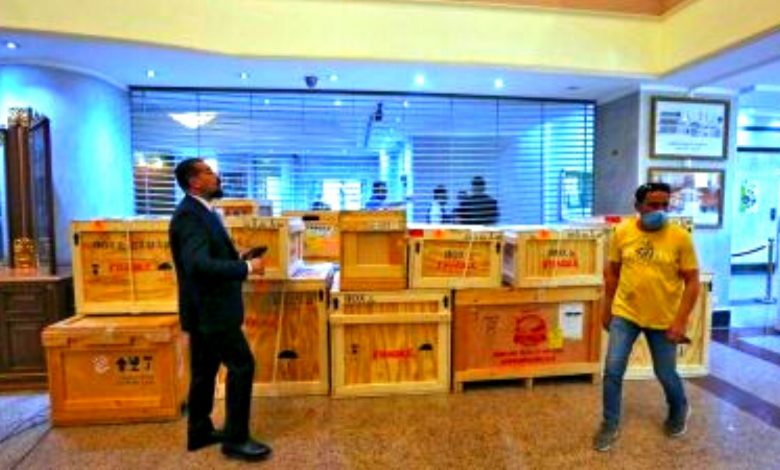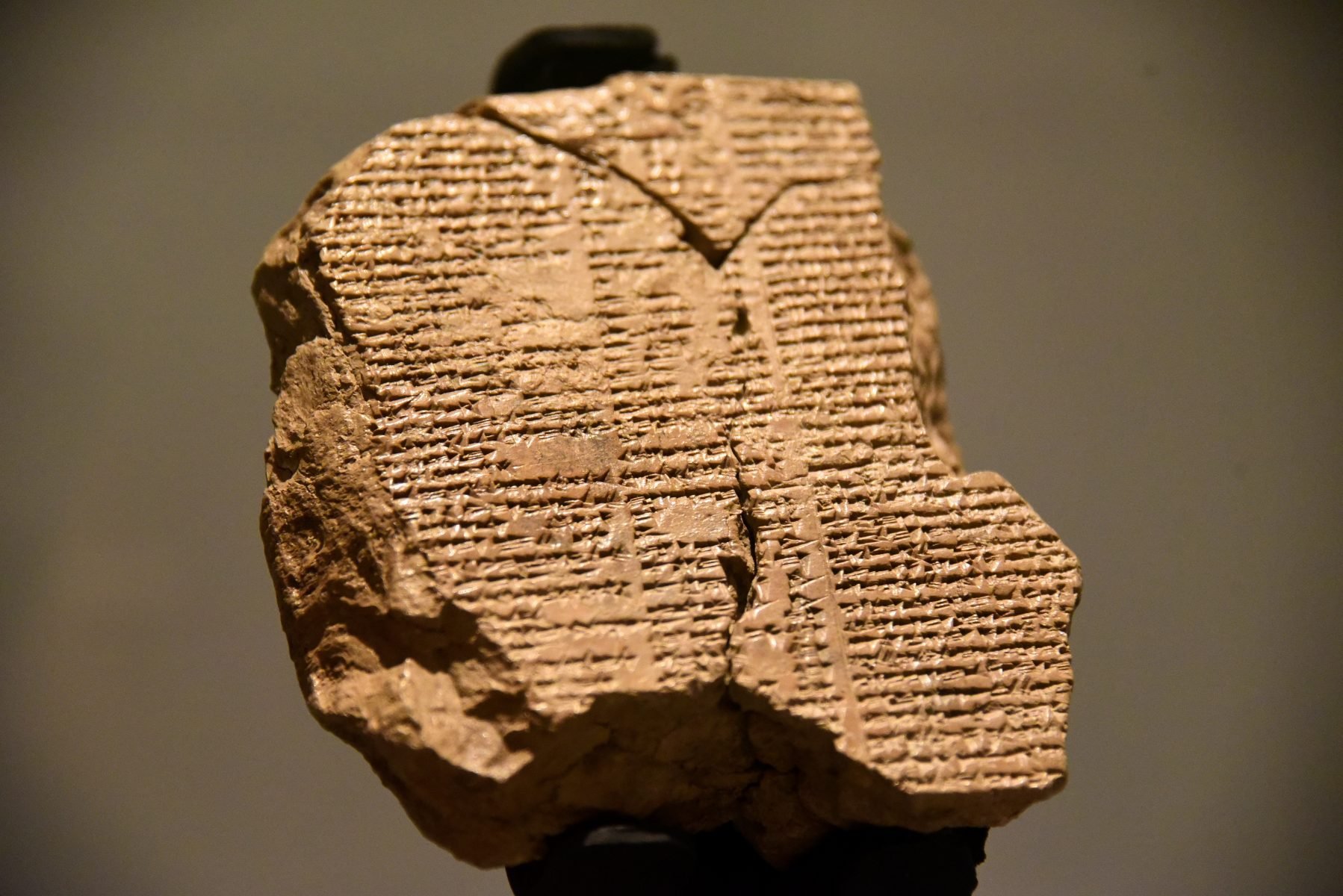17,000 Looted Artifacts make their way back to Iraq

Iraq reclaims looted Artifacts from USA in the country’s biggest-ever repatriation
Baghdad: Tens of thousands of artifacts disappeared from Iraq after the 2003 invasion that overthrew leader Saddam Hussein. Opportunistic looters stole approximately 15,000 priceless cultural artifacts from the National Museum of Iraq, taking advantage of the evacuation of museum staff until US forces were able to restore order. Many more were smuggled out or destroyed by the ISIL (ISIS) armed group, which held a third of Iraq between 2014 and 2017 before it was defeated by Iraqi and international forces. These artifacts have been popping up on the antiquities market ever since, often accompanied by forged or questionable claims of provenance.
On Tuesday, plywood crates holding the thousands of clay tablets and seals — pieces from Mesopotamia, site of the world’s earliest civilizations — were stacked next to a table displaying a few of the artifacts as the Iraqi Culture Ministry took custody of the cultural treasures. The artifacts accompanied the Iraqi prime minister from his official visit to the United States. 17,000 archaeological artifacts have been returned by a prominent museum and an Ivy League university in the largest-ever repatriation of looted Iraqi antiquities.

The repatriation of so many objects mark a remarkable chapter in the war-ravaged Iraq where decades of conflict and caused its most prized pieces of history to be pulled out of the ground by antiquities thieves and sold abroad, ending up on display in other countries’ museums. Thousands of them were purchased by billionaire Steve Green, founder of the Hobby Lobby craft chain store, on behalf of the Museum of the Bible in Washington, DC. The addition of artifacts from ancient Mesopotamia was intended to provide context for Old Testament events.
The artifacts also included the so-called “Dream of Gilgamesh” tablet, a rare cuneiform text dating back to ancient Mesopotamia. The Epic of Gilgamesh is an ancient Sumerian tale considered one of the world’s first pieces of literature. The “Dream of Gilgamesh” tablet concerns a section of the poem where Gilgamesh tells his mother about the strange dreams he’s been having.
Smuggling Trail
US authorities seized the Gilgamesh tablet in 2019 after it was smuggled, auctioned and sold to an art dealer in the state of Oklahoma and displayed at a museum in Washington, DC, the Department of Justice said. A court-ordered its forfeiture last month. In December 2013, the tablet was passed to an international auction house in London for private sale. Hobby Lobby bought it for $1.7 million in July 2014 and gave it to the Museum of the Bible.
More than 5,000 of the other pieces returned last week had been held by Cornell University. That collection from a previously unknown Sumarian city of Garsana was donated to the university in 2000 by an American collector. Partly because the city was unknown, it was widely suspected by archaeologists to have come from a looted archaeological site in the south of Iraq.
“This is not just about thousands of tablets coming back to Iraq again — it is about the Iraqi people,” Hassan Nadhem, the Iraqi minister of culture, tourism and antiquities, said in a telephone interview. “It restores not just the tablets, but the confidence of the Iraqi people by enhancing and supporting the Iraqi identity in these difficult times.”
It’s not the first time Hobby Lobby has been ensnared in allegations of antique smuggling. Four years ago, the U.S. Department of Justice fined Hobby Lobby $3 million for failing to exercise due diligence in its acquisitions of more than 5,000 artifacts; some of those artifacts were among those returned last week to Iraq. Hobby Lobby agreed as part of the government lawsuit to tighten its acquisition procedures, and the museum found thousands more suspect artifacts after it later initiated a voluntary review of its collection.
Iraq’s ancient heritage has been decimated by conflict, destruction and looting especially since 2003. Thousands of artifacts are still missing.



